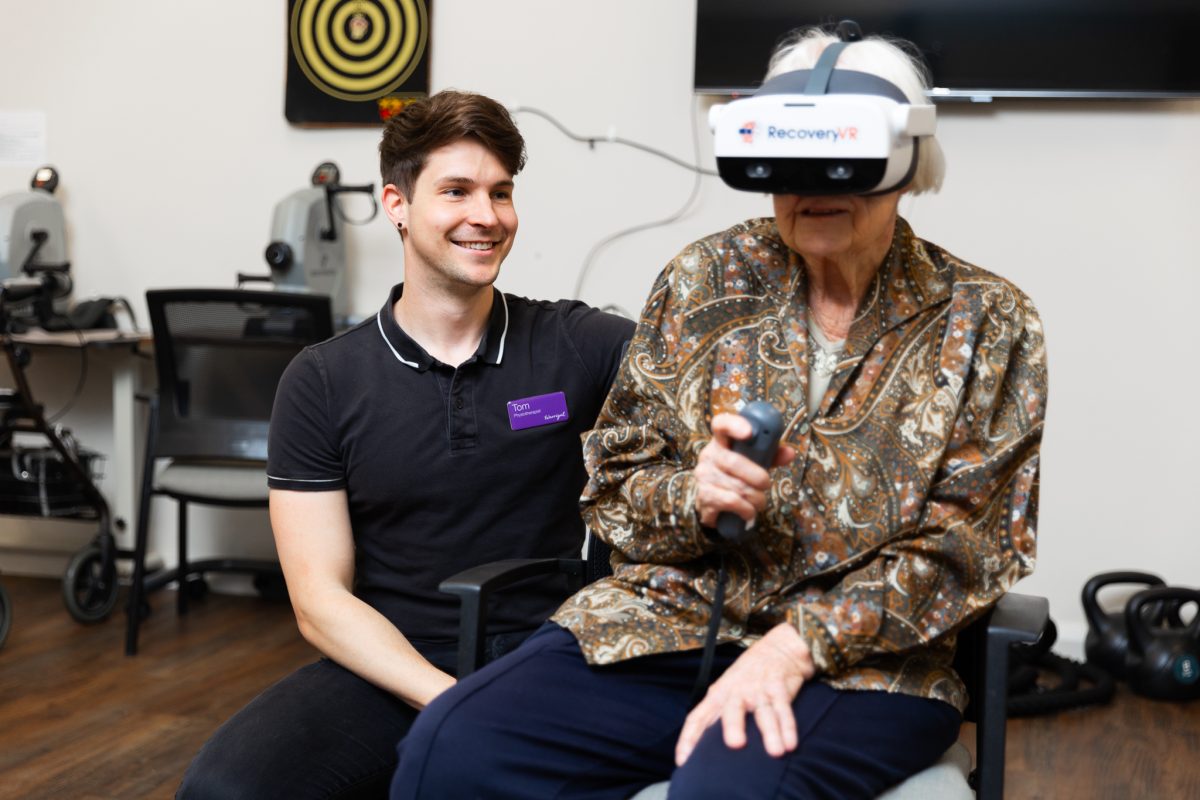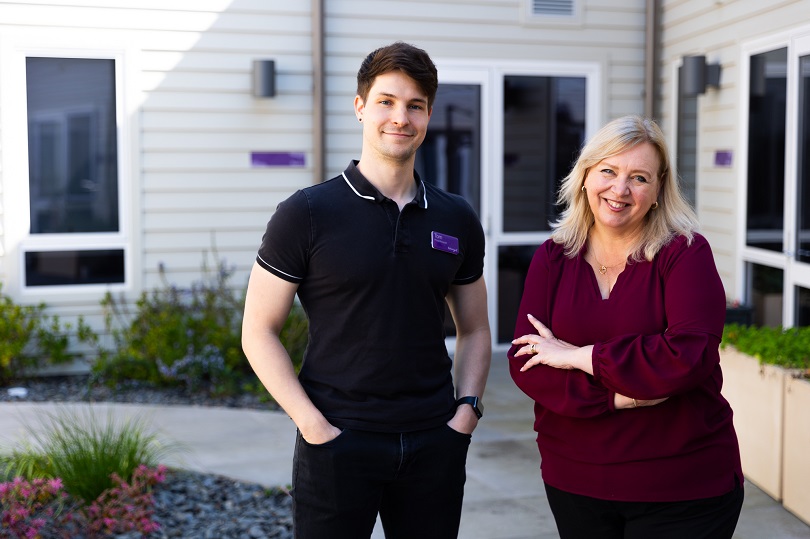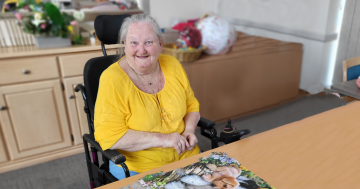
Warrigal Quenbeyan resident Eunice Campbell uses VR headsets under the supervision of Tom McGill. Photo: University of Canberra.
A group of aged care village residents have been transported into a virtual world as part of a University of Canberra (UC) research project – and they’ve shown improved physical and mental outcomes as a result.
Brenda Conroy, a Master of Public Health graduate from UC, collaborated with ageing research specialists Dr Nathan D’Cunha, Dr Stephen Isbel and Dr Helen Holloway to conduct the four-week study with 10 aged care residents who used RecoveryVR headsets under the supervision of the organisation’s physiotherapy team.
“Virtual Reality [VR] has already been found to deliver rehabilitative benefits for chronic conditions such as Parkinson’s Disease, and we wanted to look at the feasibility of using it in a residential aged care setting,” Ms Conroy said.
“We used the VR headsets in Warrigal Queanbeyan’s small gymnasium, giving participants an opportunity to try something new as part of their regular exercise programs.”
Ms Conroy interviewed staff and participants immediately after the sessions to find out what they did and didn’t like about the experience.
“Two out of the 10 residents decided it wasn’t for them,” Ms Conroy said.
“The other eight really enjoyed the sessions with some saying they liked it because it was different from their normal routine. Some liked how it improved their physical capabilities and others felt like it made them more mentally fit because they were learning a new skill.”
The residents used the headsets once a week during a one-hour physical activity session while seated. They were encouraged to exercise their upper body by reaching and stretching, or moving their arms back and forth.
The VR experiences ranged from a virtual walk along the Brisbane River boardwalk to engaging in boxing exercises and playing ‘fruit smash’ where users hit flying fruit with a virtual tennis racquet.
“It didn’t take me long to get used to it. I really enjoyed ‘meeting’ people walking along the boardwalk,” said Eunice Campbell, one of the participants.
“You don’t realise you’re exercising because you’re having fun,” said Ted Mackey, another participant, who rated ‘fruit smash’ his favourite VR experience.

Physiotherapist and Allied Health team leader at Warrigal Queanbeyan Tom McGill and UC Master of Public Health graduate Brenda Conroy. Photo: University of Canberra.
Tom McGill, physiotherapist and Allied Health team leader at Warrigal Queanbeyan, was eager to supervise the VR experience. He saw staff and residents adapt to and engage with the new technology after an initial troubleshooting period.
“Some participants who previously experienced a lot of musculoskeletal pain and who would restrict their movements because of it, started to develop an improved range of motion,” Mr McGill said. “They were no longer focussed on what they couldn’t do, and were instead excited about what they could do in the VR experience.
“We also saw wheelchair-bound participants feeling as if they could walk again. They would be on a virtual trail, marching in the chair, pretending they were walking, and for some of them that was a really emotional experience because the technology removed what they see as a barrier and brought them back to a previous part of their life when they felt more able-bodied.”
With the UC study’s interim findings yielding positive results, Mr McGill is hopeful the technology can be embedded into aged care allied health offerings.
“Bringing the physical and mental benefits together to see an overall improvement in the quality of life for our participating residents was just fantastic!” he said.
Warrigal CEO Jenni Hutchins said the aged care provider was pleased to partner with UC on the research project and provide a new experience for residents.
“This innovative approach aligns with our commitment to enhance the quality of life for older people in our care and I’m thrilled to see the positive impact that VR technology has had on their wellbeing,” she said.
Original Article published by Emma Larouche on Riotact.










